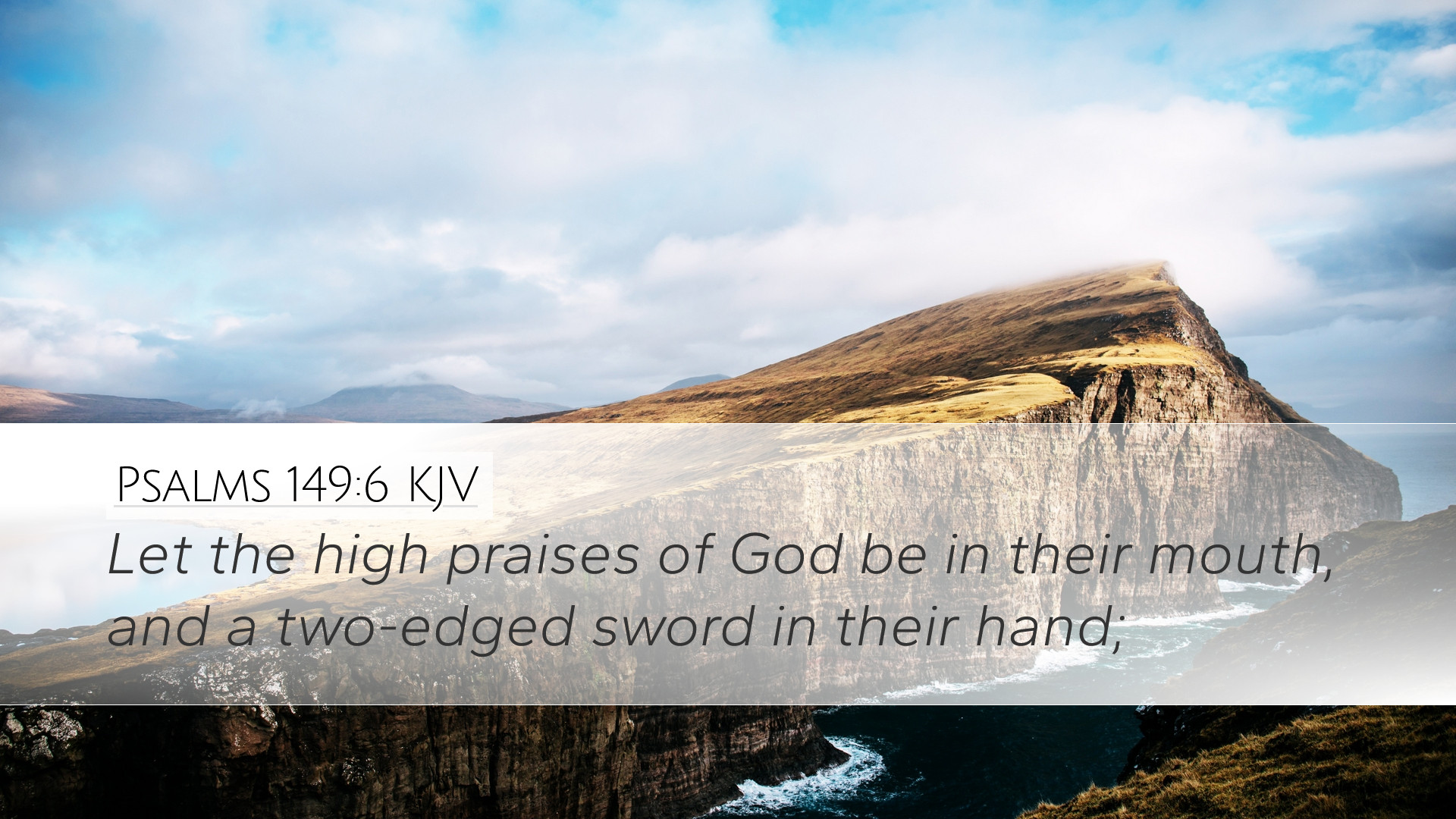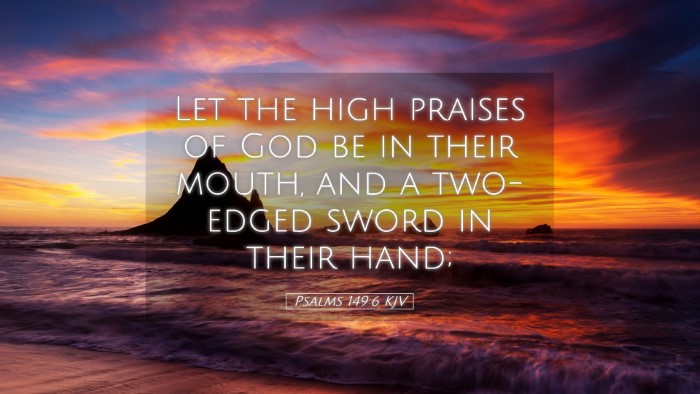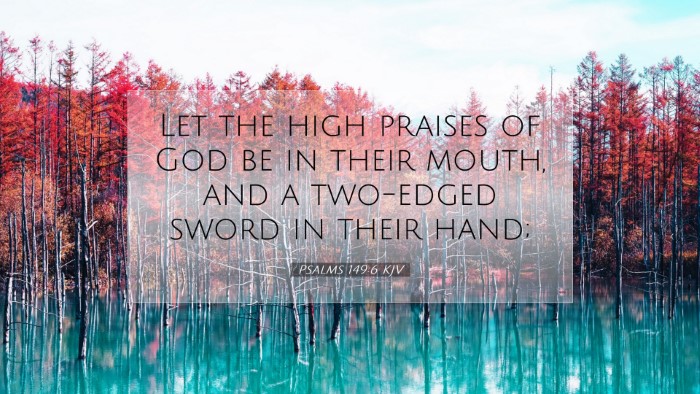Psalms 149:6 Commentary
Verse Text: "Let the high praises of God be in their mouth, and a two-edged sword in their hand;"
Introduction
The verse from Psalms 149:6 stands as a unique call to worship and a reminder of the power of divine praise. The juxtaposition of "high praises" and a "two-edged sword" presents a profound theological and practical insight into the life of the believer. This commentary synthesizes insights from esteemed public domain commentators such as Matthew Henry, Albert Barnes, and Adam Clarke, providing meaningful reflections for pastors, students, theologians, and Bible scholars.
Exegesis of the Text
In analyzing Psalms 149:6, it is critical to consider the context of the entire Psalm, which celebrates the joy of Israel in the Lord, especially in the face of triumph over enemies.
Matters of Worship
Matthew Henry reflects on the significance of praises in the life of the believer, emphasizing that worship is not merely a verbal expression but an activity that engages the heart and spirit. He posits that high praises are essential for establishing a relationship with God and reflect the glory and majesty of His person.
The Role of Praise
Albert Barnes interprets "high praises" as an invitation for exuberant, unrestrained worship. He notes that such praises are due to God alone and are an acknowledgment of God’s sovereignty and power. Barnes further explains that praises of God are a weapon against despair and can uplift the spirit in times of trouble.
The Two-Edged Sword
In a striking metaphor, the "two-edged sword" symbolizes the Word of God itself, as elaborated by Adam Clarke. He correlates the praise of God with the spiritual armament provided to believers, using scriptural references like Hebrews 4:12, which states that the Word of God is living and powerful, sharper than a two-edged sword. Clarke emphasizes that effective praise becomes a means of spiritual warfare, cutting through darkness and strongholds as it is wielded in faith.
Theological Implications
Worship as Warfare
The dynamic between praise and warfare suggests that worship is inherently combative. As believers lift their voices in high praise while holding the sword of the Spirit, they engage in spiritual warfare against evil forces. This concept of worship as warfare is an essential theme in the Christian life and evokes the imagery of the Israelites, who praised before battle (as in the accounts of Jericho).
Empowerment Through Praise
Both Henry and Barnes affirm that high praises empower and embolden believers. This empowerment, derived from deep worship, fosters courage and resilience. It instills a sense of purpose and identity in the believer, making them steadfast against the adversarial forces they encounter.
Practical Applications
- Daily Praise: Cultivating a habit of daily praise can revolutionize a believer's approach to life’s challenges and triumphs.
- Scriptural Foundation: Engaging with the Word of God through personal study strengthens the believer's capacity to wield the sword of the Spirit effectively in situations of conflict.
- Community Worship: Participating in corporate praise acts as a unifying force within the body of Christ, enhancing communal strength and faith.
- Faith in Action: Embracing the dual nature of worship (praise and warfare) helps believers understand their responsibility in advocating for justice and truth.
Concluding Thoughts
Psalms 149:6 encapsulates the essence of the believer's life as one of jubilant worship and active engagement in spiritual warfare. The insights drawn from Matthew Henry, Albert Barnes, and Adam Clarke reinforce the importance of praise as both a testament to God’s glory and an instrument of spiritual power. In understanding and embodying this duality, believers can navigate their faith journey with strength, conviction, and an ever-deepening relationship with God.


